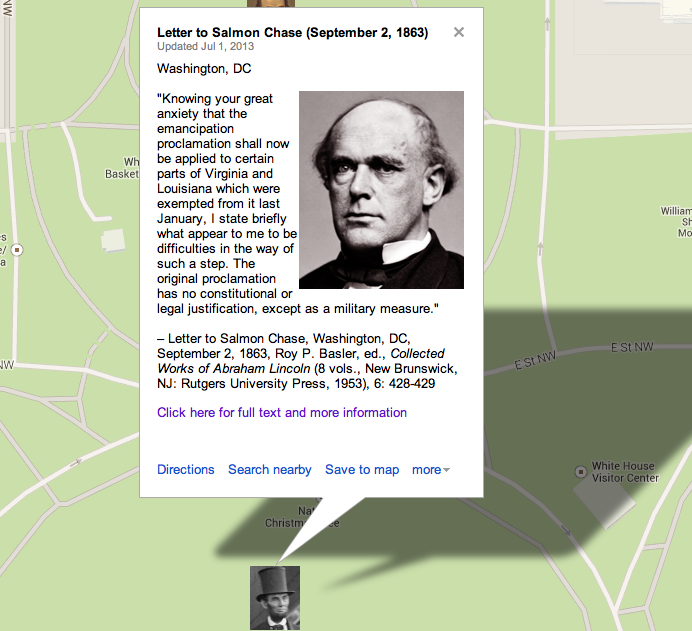Contributing editors for this page include Lisa Staup
Ranking
#68 on the list of 150 Most Teachable Lincoln Documents
Annotated Transcript
On This Date
HD Daily Report, September 2, 1863
The Lincoln Log, September 2, 1863
Close Readings
Posted at YouTube by “Understanding Lincoln” participant Lisa Staup, 2016
Custom Map
How Historians Interpret
“Secretary of the Treasury Salmon P. Chase argued against such exceptions and kept after the President thereafter to extend the Emancipation Proclamation to all of Virginia and Louisiana. Lincoln replied to him on September 2, 1863… Notice the words ‘Could this pass unnoticed?’ ‘Could it fail to be perceived…?’ It is important for constitutional government what the people of the Country understand their officer to be doing and on what authority. It is also important that the people be trained to expect the basis of governmental authority to be evident, even when extraordinary measures have to be resorted to.”
— George Anastplo, Abraham Lincoln: A Constitutional Biography (Lanham: Rowman & Littlefield Publishers, 1999), 218.
NOTE TO READERS
This page is under construction and will be developed further by students in the new “Understanding Lincoln” online course sponsored by the House Divided Project at Dickinson College and the Gilder Lehrman Institute of American History. To find out more about the course and to see some of our videotaped class sessions, including virtual field trips to Ford’s Theatre and Gettysburg, please visit our Livestream page at http://new.livestream.com/gilderlehrman/lincoln

